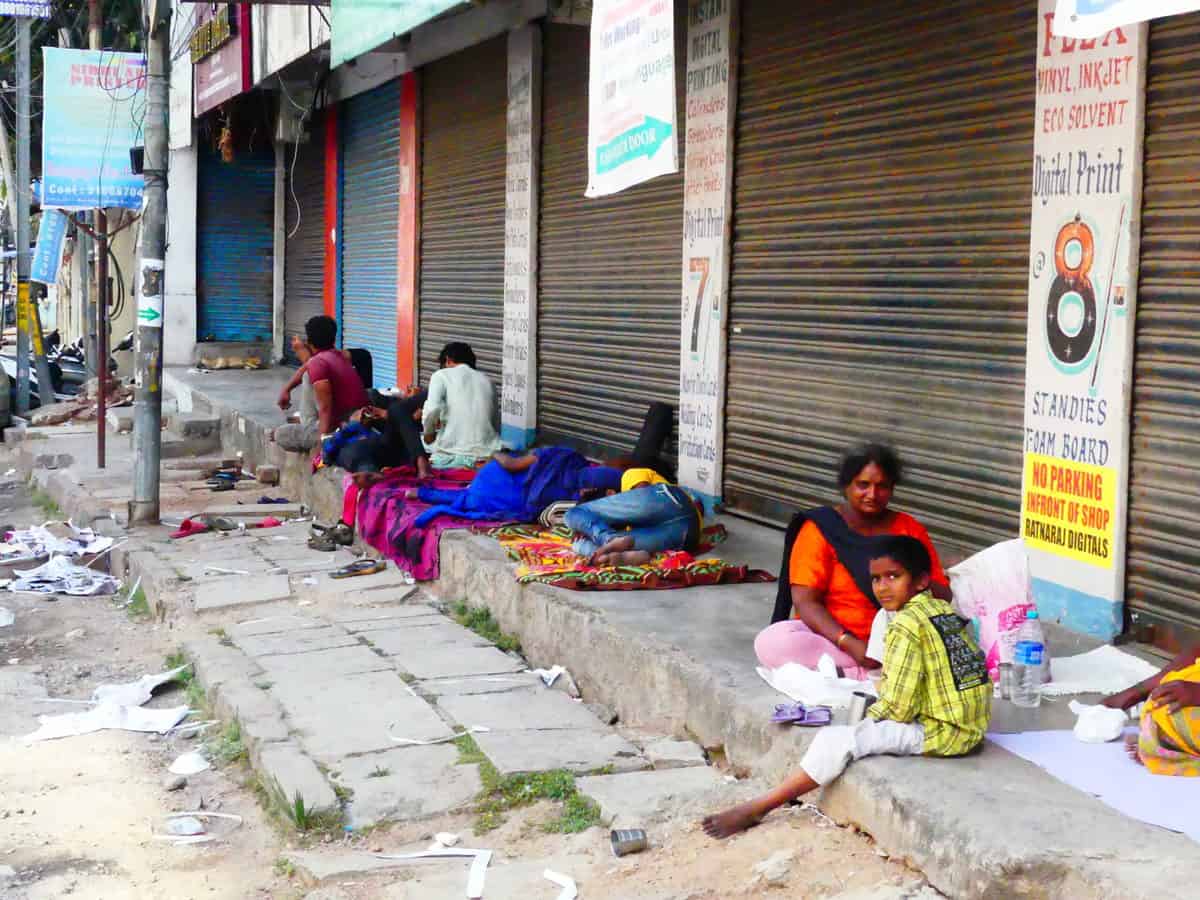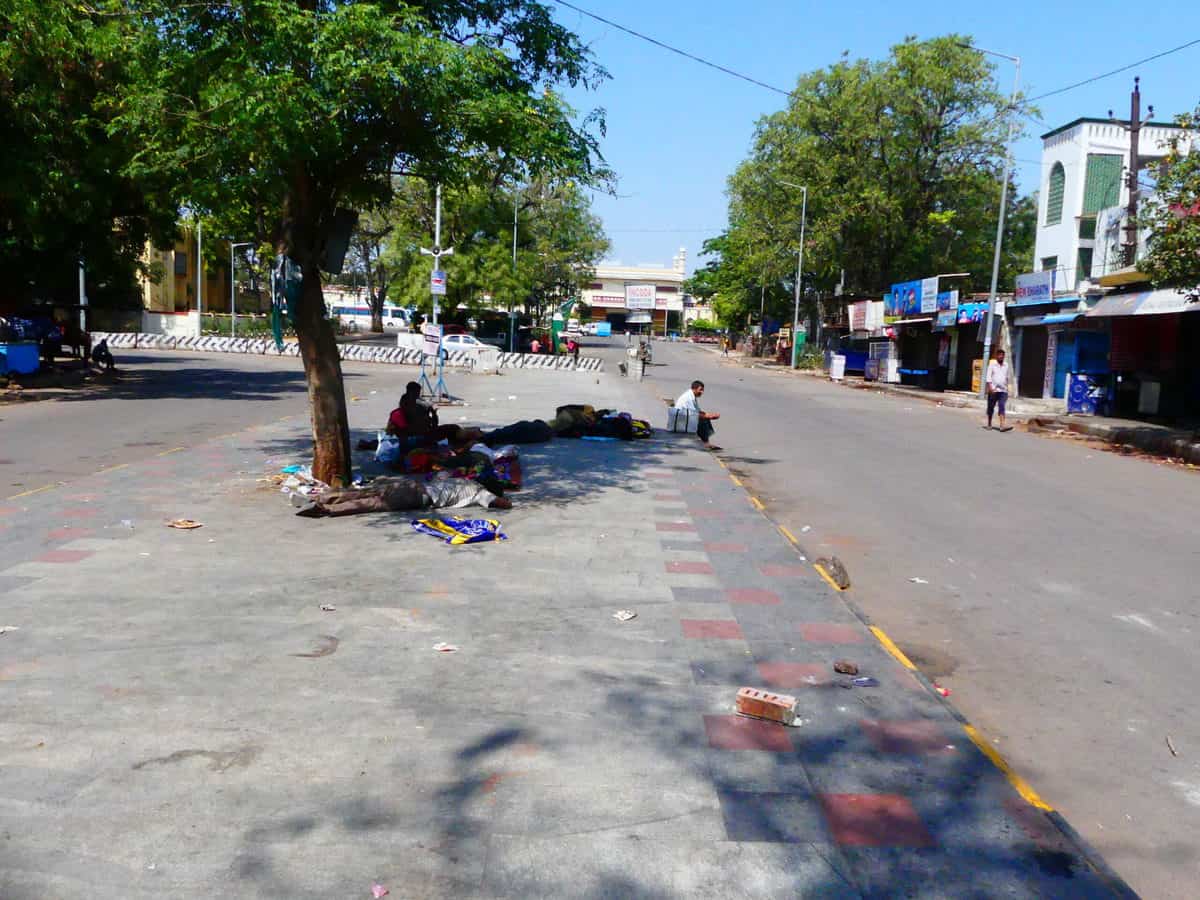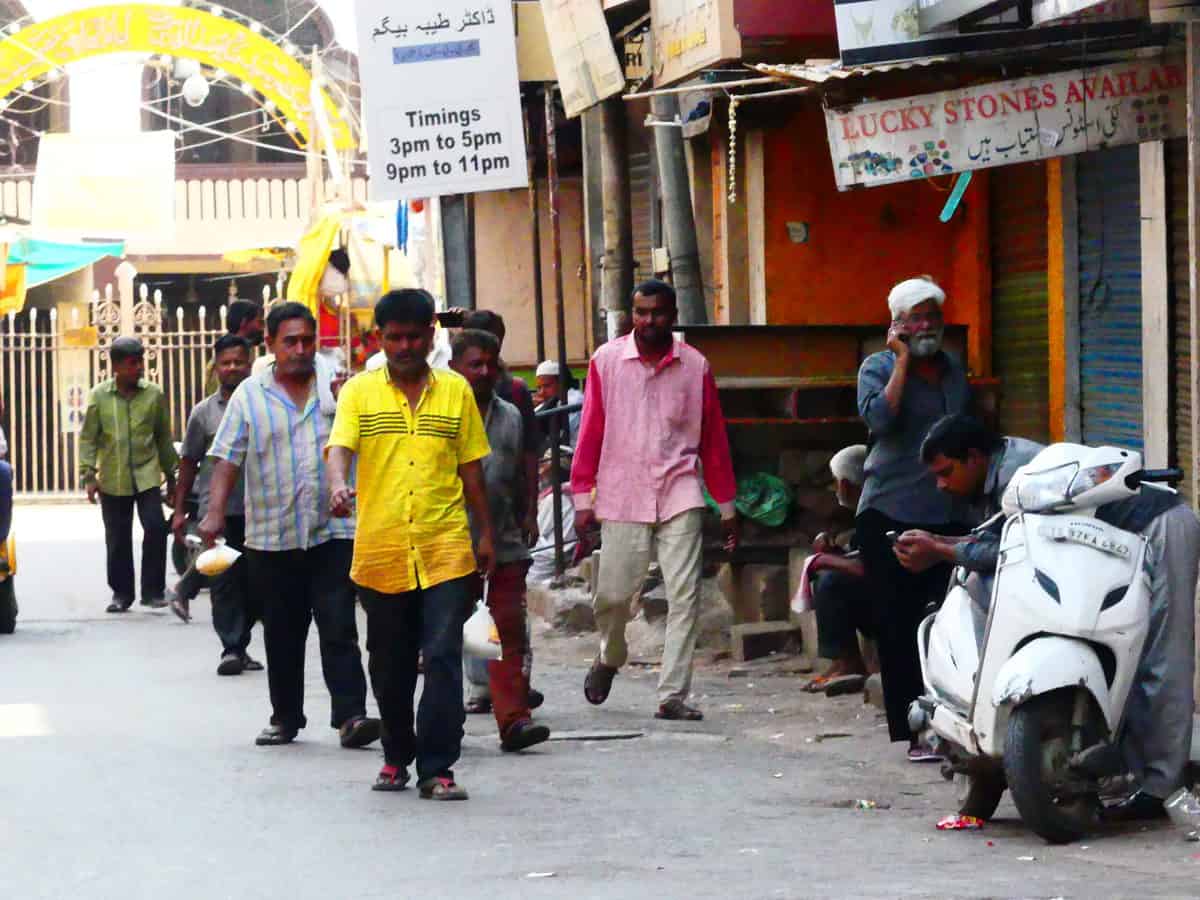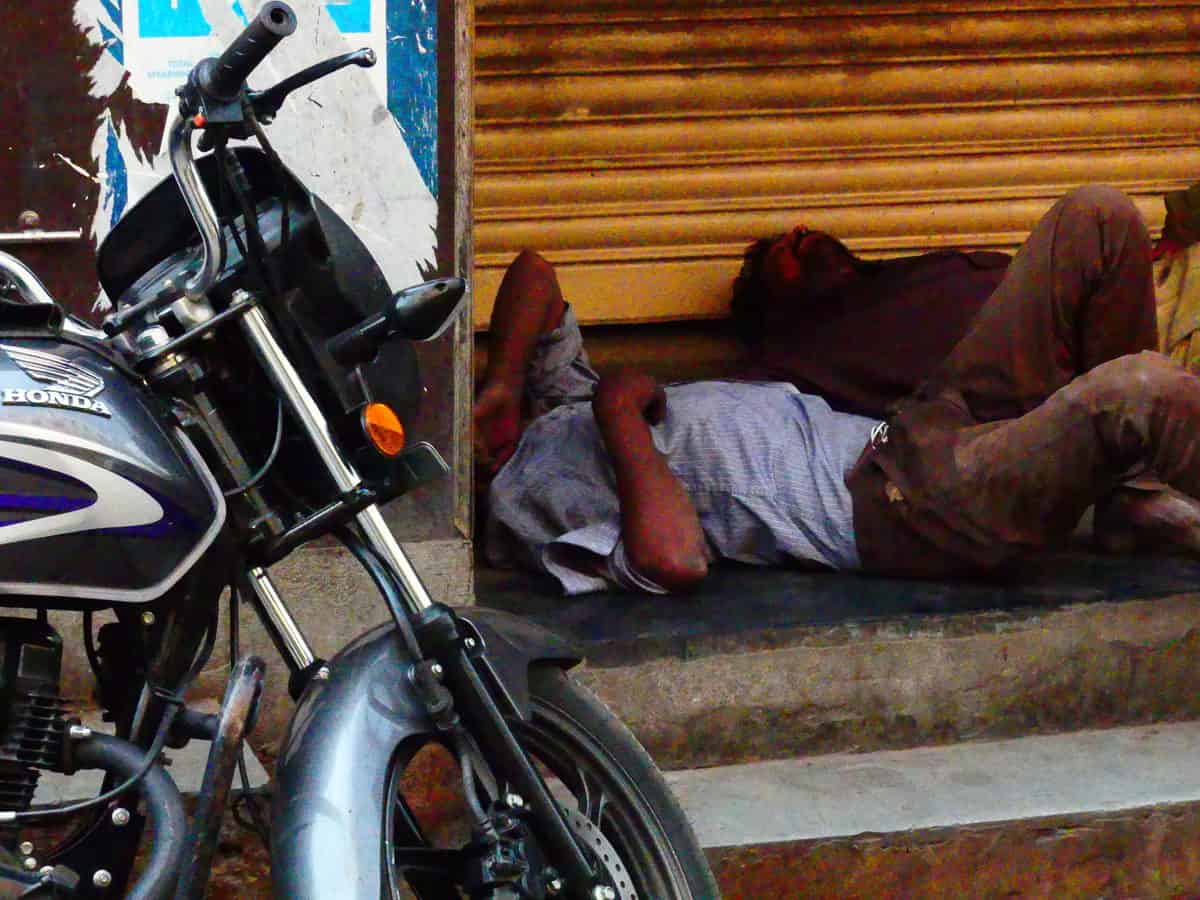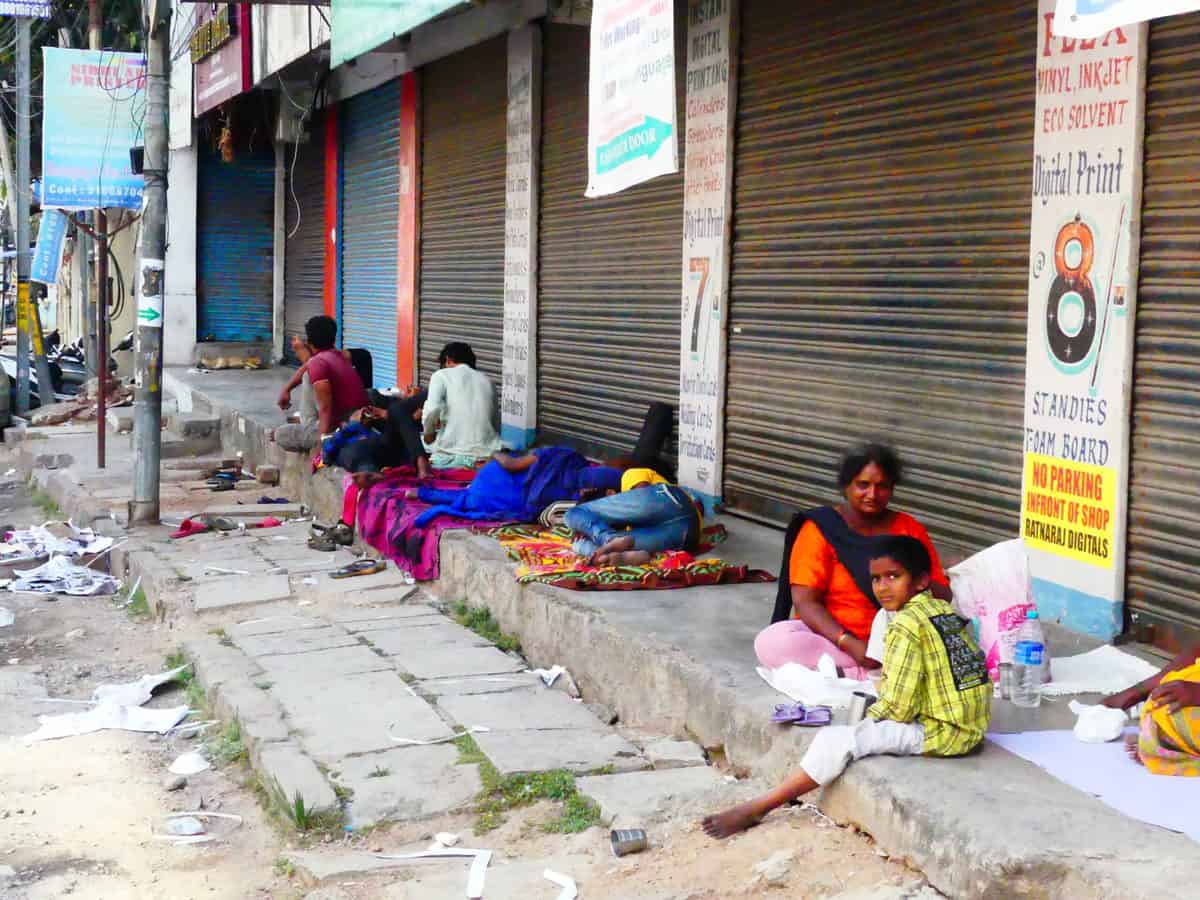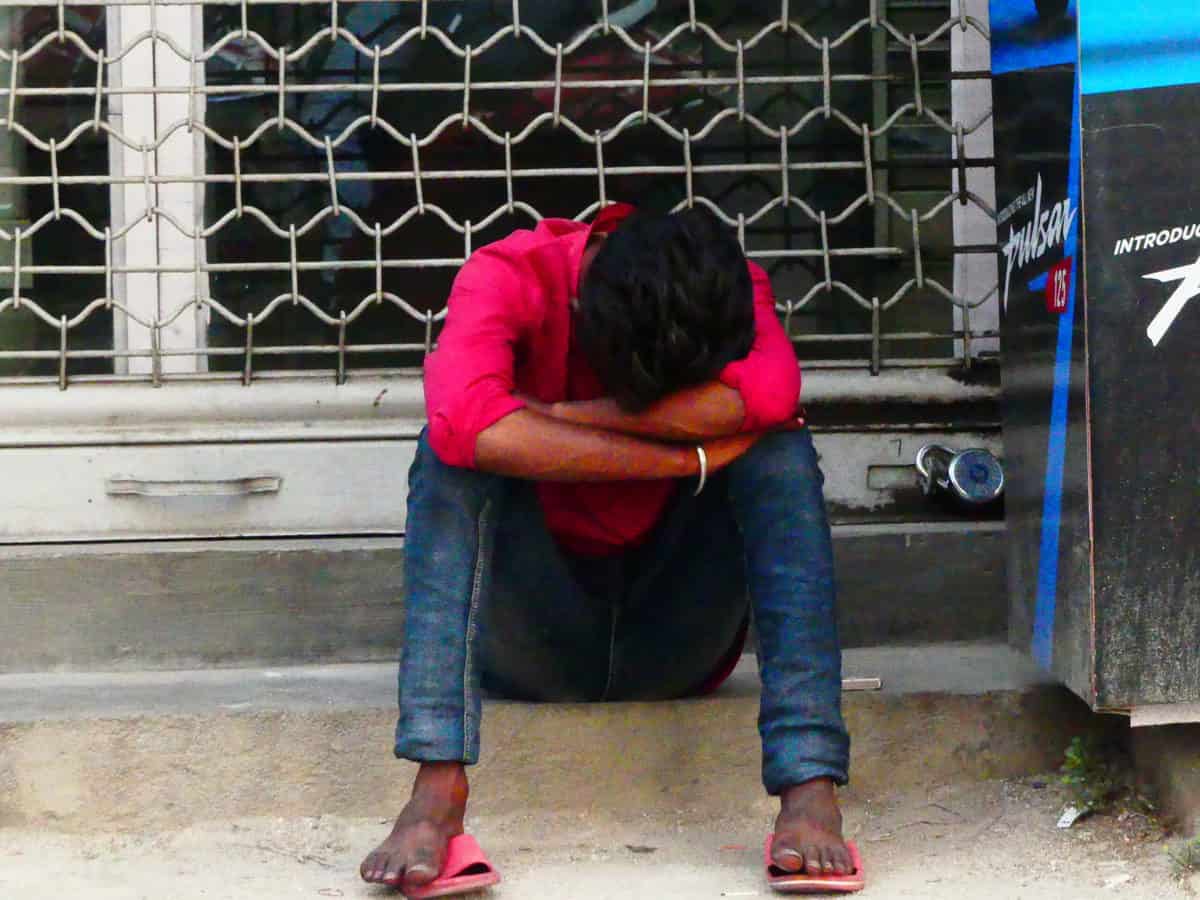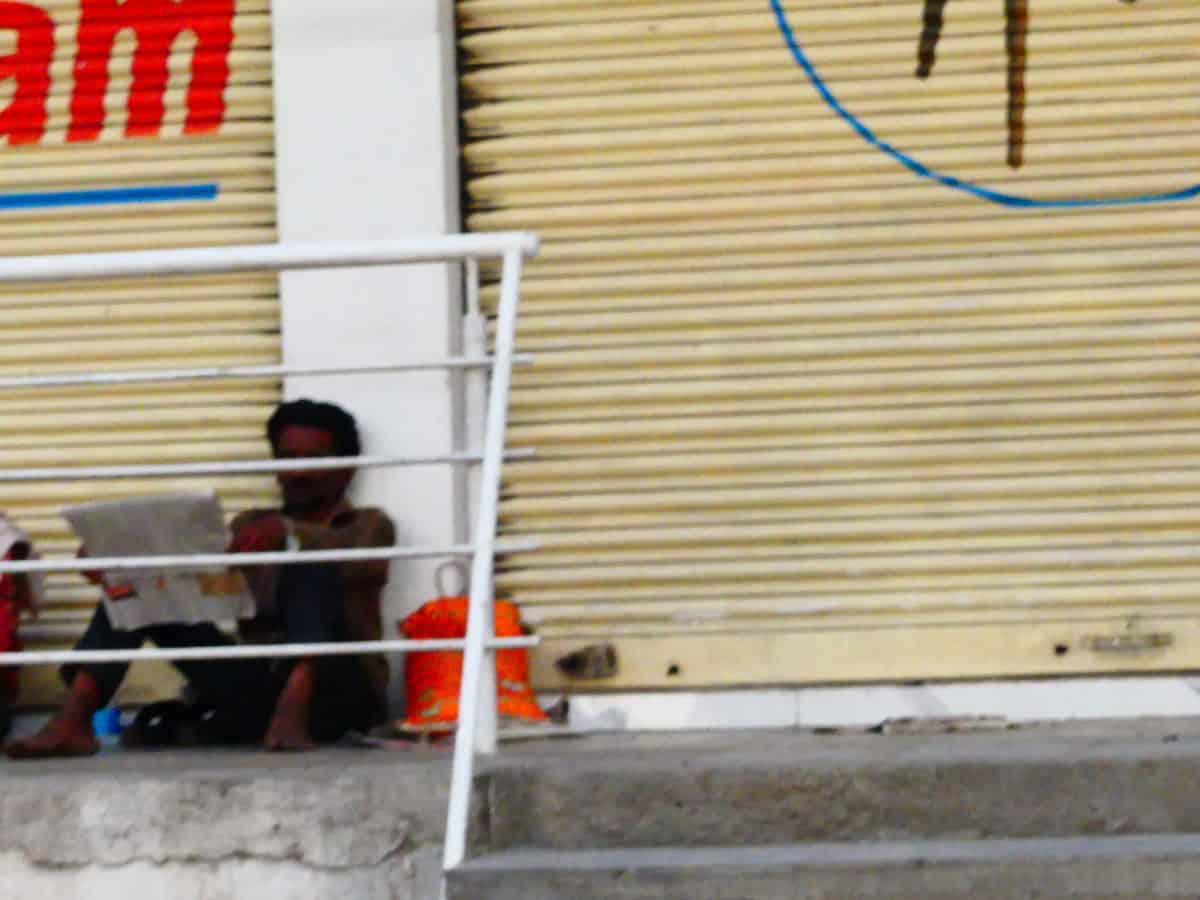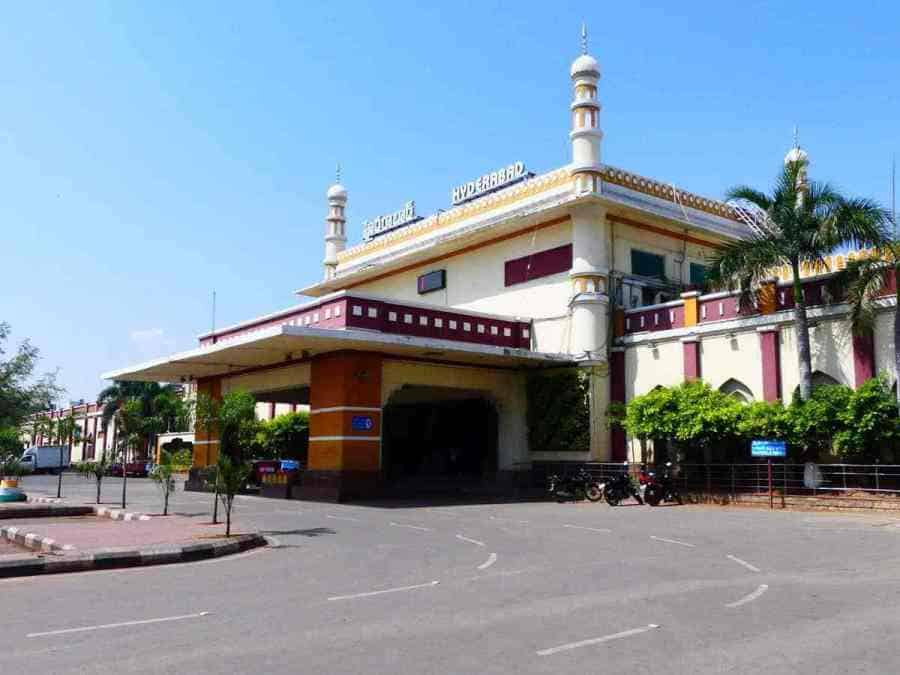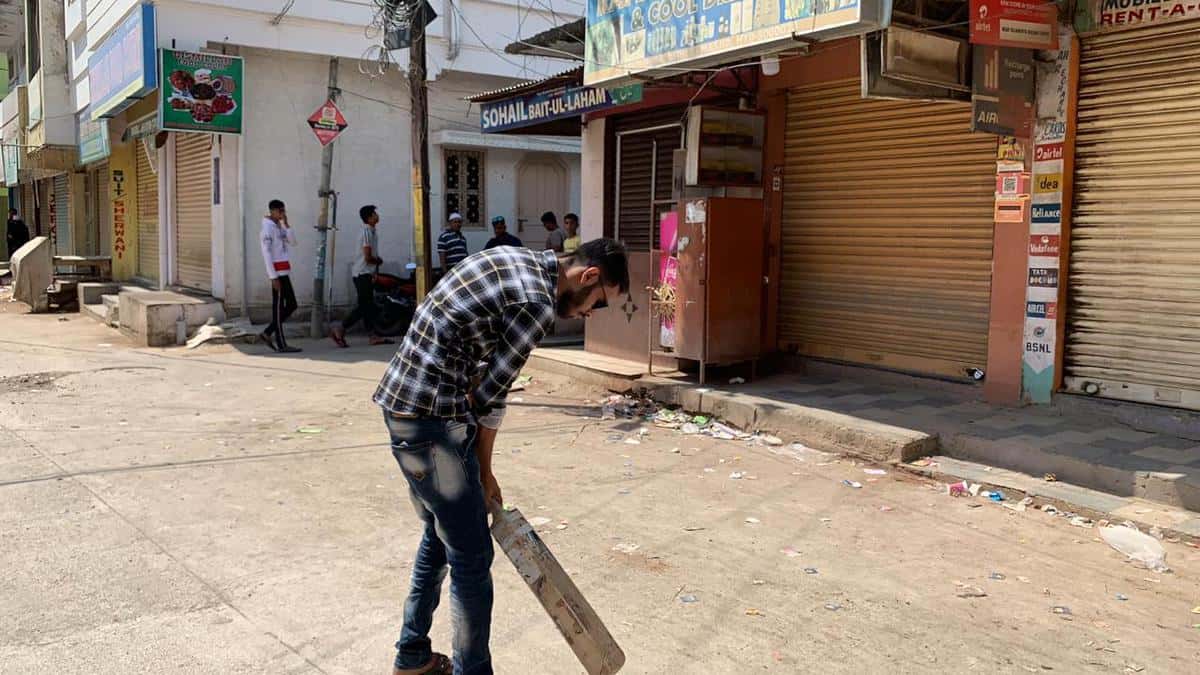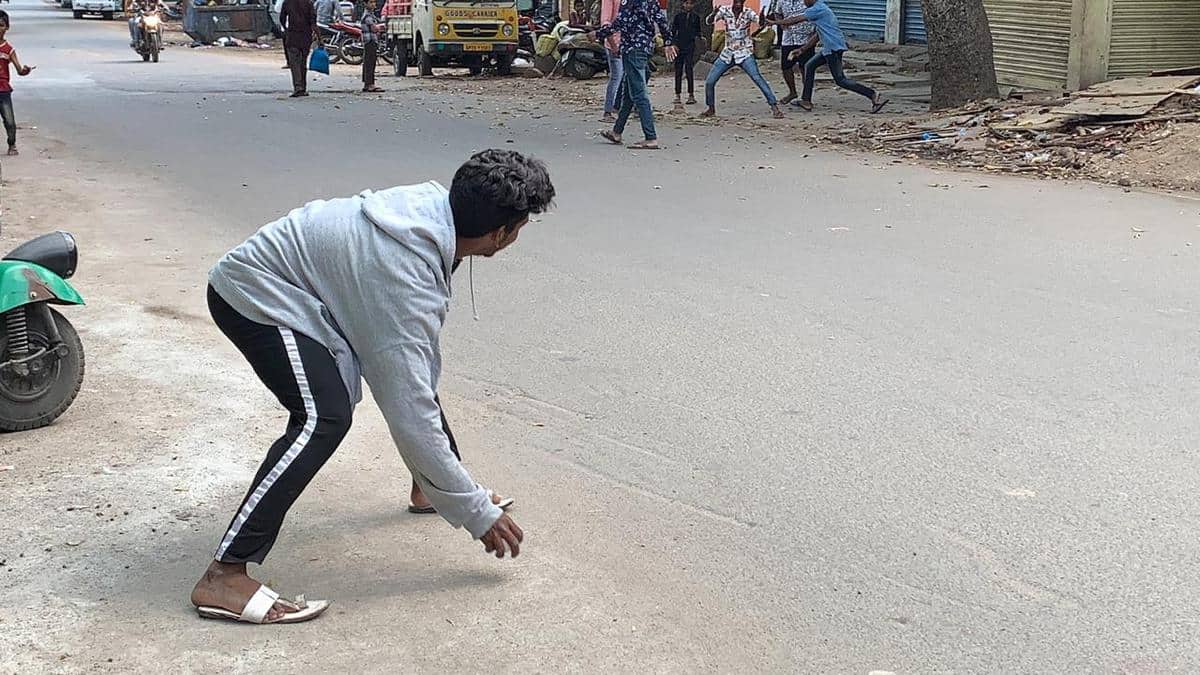Hyderabad: One could never imagine that Hyderabad would drown itself in silence while usually noisy, bustling roads now sing the silent songs of emptiness.
“Teri khamushiya agar teri majboori hai, tu rehne de humara nikalna usse ziyada zaroori nahi,” croons the city.
This roughly translates to “If staying at homeland leaving the roads is empty, then the only way to be safe is to abide by it.”
As the entire Hyderabad city reeled under lockdown in response to the coronavirus outbreak and in view of the Janta Curfew has over 12.2464 million people of Hyderabad are confined to their homes. However, thousands of homeless souls in the city were lying on the footpaths of Charminar, Nampally and Public Gardens as well as three major railway stations out of the city including Hyderabad, Secunderabad and Kachiguda.
The homestay for many was all about relaxing, chilling, and enjoying time with family. Meanwhile, the homeless are more than just lonely. They are fraught with fear about their bread and butter. “Wo virus to jaan lera sunne humlog; leken bhuk bhi tu wahi karri na sahib (We hear that the virus is taking lives, but the this hunger is doing the same by robbing us of our livelihood).”
Today when a siasat.com reporter visited the Hyderabad Railway Station at Nampally, the footpaths in and around the railway station were jam-packed by beggars who were struggling for food and water.
A number of them were daily wage workers who work in hotels and construction sites. Beggars — whose dominions the only extent to the shadows of trees, parking zones and spaces on roads — were asked what they plan to do in the event of the curfew extending for 15 days, they said “Hamesha hum gareebo ko aur bhi musibat hoti (The poor always suffer).”
When asked if they had a white card, they said “Saab wo kaisa lana aur kiya karna, nahi maalum (Sir, we do not know where to get it and what to do with it!).”
This self-imposed quarantine known as the Janta Curfew has hit them hard and the deadly COVID-19 poses a danger to their sustenance.
In view of the Janata Curfew on Sunday, over 10, 000 police officers were deployed in the city to ensure everyone stays at home.
Moreover, on Saturday, lots of people were spot on grocery shops, vegetable markets, and meat shops to get their houses to stock up on food. This helped vendors make a killing as they boosted their prices on items like the tomatoes for Rs.80 per kg which on the same evening was previously sold for Rs. 60 less. As the shops also drowned in desolation with the dwindling number of denizens at the delicatessen, items also flew off the shelves like the speedy particles of light, only adding to the stores’ solace.
But what about people less fortunate than those who have the privilege of sustaining themselves through purchases at grocery outlets? Do they have the basic essentials needed to sustain themselves over the length of this lockdown?
While the world is panic-buying, there are thousands of poor folks who can barely afford a week’s worth of groceries, let alone a month’s.
To make matters worse, low-income workers or daily laborers do not have medical insurance which puts them in a very risky situation if they contract the coronavirus.
On top of that, the Janta Curfew is making people stay at home. For a legitimate reason of course. Even if a poor vendor opens shop on the street or in a rickshaw, their customers are at home.
English philosopher and statesman, Francis Bacon famously said: “If the mountain will not come to Muhammad, then Muhammad must go to the mountain.”
Of course, the coronavirus has turned many mountains into quite the mice, thereby hurting many Muhammads in the process.
To rid his own dominion of. the coronavirus, the Telangana Chief Minister K. Chandrashekhar Rao announced that the state is going to be in lockdown till 31 March 22, 2020. He urged people to stay at home while also stating that people with white ration cards can get 15 kgs of rice and other facilities.
“In a city like Hyderabad where lakhs of people live below the poverty line, this pandemic’s damage is not limited only to the loss of life; it has the potential to demolish entire livelihoods of people and affect poor communities in a fatal manner,” said a social activist who wished to remain anonymous.
The citizens turned out to be very responsive and cooperative, as 95% of the population were in their homes and partook in the “clapping” ritual at 5 pm to profess gratitude to those at the forefront of containment efforts. Meanwhile, contrary to these measures for the common good, many went about their business as usual with chabutra gatherings, galli cricket and shops in the interior parts of the city.
Police were also seen punishing teenagers by making them hold placards as they were out on roads for no reason.
Yet the worry of many citizens’ daily expenses somehow exists side by side alongside the mothers’ complaints about their energetic children’s mischief during this period of inactivity.
Till March 31, the mice, mountains and Muhammads alike will somehow have to get by.
Although some have it easier than others.
mohammedhussain.reporter@gmail.com

